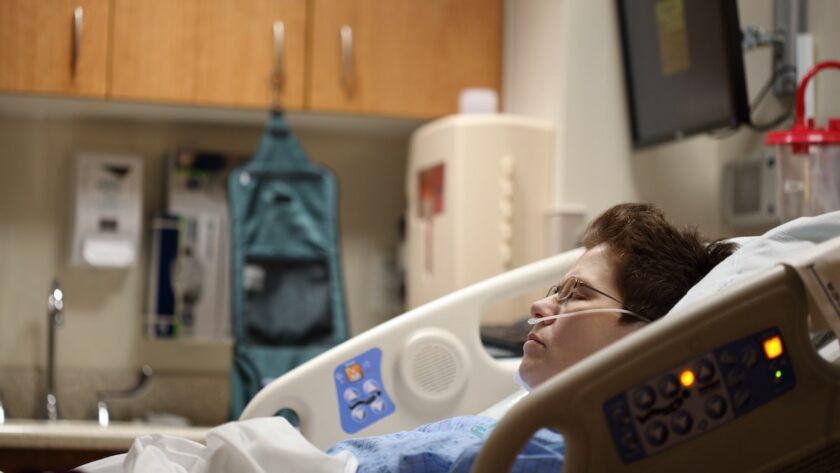Recovering from a major injury can often be a long and difficult process, both physically and emotionally. There are also common mistakes people make that can set back healing or make life even more difficult. They include ignoring medical advice or not taking the right steps after suffering a work injury. In this article, we’ll look at 6 things you should try and avoid during your recovery from a major injury.
1. Not Taking Legal Advice
This is especially important where another person or organization was responsible for the accident. A lawyer can maximize the chances of gaining justice and receiving fair compensation. A personal injury lawyer can provide invaluable advice on how best to approach insurance companies or other liable parties. They can also advise you on how to protect your rights.
A lawyer can help you navigate medical bills and insurance policies. They can explain state laws, gather evidence for your claim, and submit it correctly. They can also speak on your behalf in court, if necessary. If you’re considering hiring a personal injury attorney, you can access live chat online or request a free case evaluation. Their website will confirm their practice areas, and display team photos and affiliations/accreditations. You may also be able to view how much money they’ve reclaimed from successful verdicts and settlements.
2. Ignoring Medical Advice
While medical advice is strongly recommended for recovery, some people find themselves ignoring it and attempting to go about their lives as normal. However, it’s important to consider the long-term consequences of doing this, for yourself and others. Your medical professional will most likely provide specific instructions and tips on how best to return to physical fitness and health. They could include specific physical therapy exercises or even house modifications. The latter may include adding extra rails, or widening doors in order to accommodate mobility aids (such as wheelchairs or crutches).
If you’ve been prescribed medication it’s crucial that you take it as instructed. If counseling or support groups are recommended to improve your mental health following the accident, don’t neglect them. Not following any of these instructions could lead to further injury or prolonged recovery time. This could increase your time off work – putting pressure on your finances, and the loved ones who are currently helping you.
3. Overdoing It
When recovering from a major injury, it’s easy to become overly enthusiastic and overexert yourself. While physical activity can help with the art slow and gradually increase intensity. Trying too hard too quickly can put your body under added stress, and strain your muscles beyond their capabilities. Short-term pain may become long-term agony if you overdo it during the recovery period.
Therefore, listening to your body’s feedback is essential for a healthy outcome. Ignoring pain signals can have serious consequences for both the short-term and long-term recovery process. These signals are an innate process by which our bodies communicate that something needs attention or care, in order to heal properly. Without paying heed to the symptoms, we may end up exacerbating our condition. Alternatively, we may permanently damage our body’s ability to heal itself in the future.

4. Not Getting Enough Rest
Let your medical specialist tell you how much rest you need to have. It’s very common for injured individuals to not realize how important this is during the healing process. In order to ensure a speedy recovery, it’s essential to allow your body time to heal. This means not resuming work or a normal life too soon.
The recovery stage doesn’t have to be boring, however. There are plenty of activities that can help with your physical and mental health, without compromising progress. Regular stretching and light exercise are good options while engaging in high-intensity activities (such as running or weightlifting) should be avoided until you’re completely healed up.
5. Overly Relying on Medication
Medications can be an important tool in managing the discomfort associated with recovery, particularly for those with chronic pain. However, they shouldn’t be relied upon exclusively. Physical therapy can be an effective way to help manage symptoms and rebuild strength without relying solely on drugs. Physical therapists can develop plans tailored to each individual’s needs and provide guidance throughout the recovery process.
Also, focusing on proper nutrition can help improve overall health during recovery. In turn, this may reduce the need for medication. Eating plenty of fruits and vegetables, whole grains and lean proteins can provide essential nutrients needed for healing, while minimizing inflammation in the body. It’s also important to stay active and maintain a healthy weight so that the body has the energy it needs to recover.
6. Not Letting Others Help You
This can be difficult for individuals who are used to managing all aspects of their life on their own. Acting independently and refusing help (from family, friends, or colleagues) can be detrimental to your recovery process. Allowing others to support you during this time can reduce stress and make the whole experience much easier. It also helps build meaningful relationships with those around you while they provide assistance with tasks (such as running errands or helping out around the house).
Having someone there who understands what you’re going through is incredibly beneficial in aiding your healing journey, as well as providing emotional support when needed. Finally, there may be medical professionals who can support you, or benefits that you’re entitled to claim. The latter may be able to help you with any financial worries you’re experiencing.
If you avoid these 6 major mistakes you’ll be in the best possible position to make a physical recovery. If it takes longer than expected, remain patient and hopeful. In time, you’ll either return to full health or adjust to the new normal as you resume your life.



